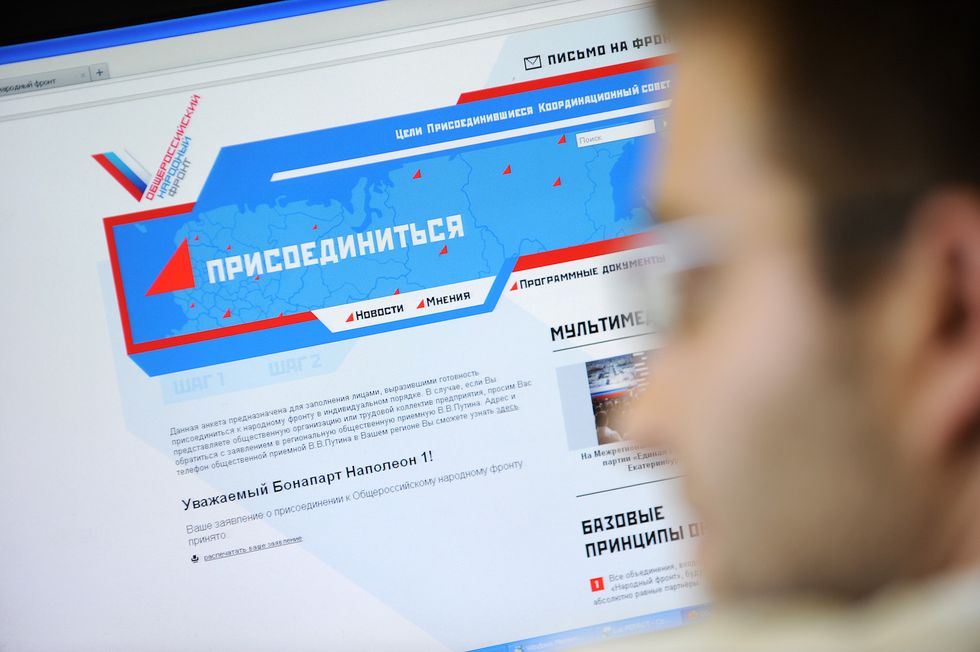
A picture taken in Moscow on June 30, 2011, shows the screen of a computer displaying a webpage of pro-Putin coalition called All-Russia People's Front internet site, with a sign reading: “Dear Bonaparte Napoleon I, your request to join All-Russia People's Front has been accepted.” It is so simple to join online the new political front created by Vladimir Putin that a whole street of a Russian city and even late emperor Napoleon I can do it, a AFP Moscow-based journalists found. A registration form contains 11 points, including name, gender, social status, education, home address, email and telephone numbers.\nAFP PHOTO / NATALIA KOLESNIKOVA (Photo credit should read NATALIA KOLESNIKOVA/AFP/Getty Images)


